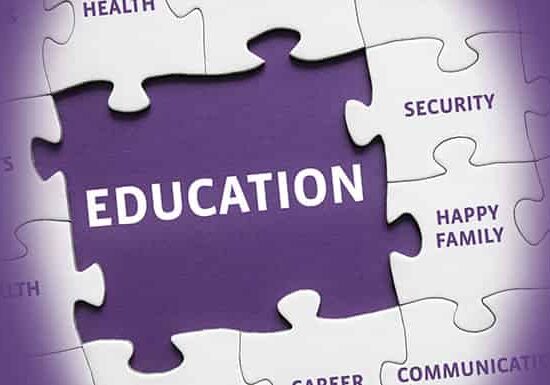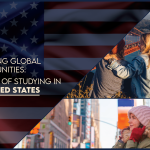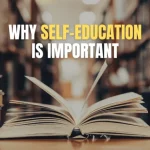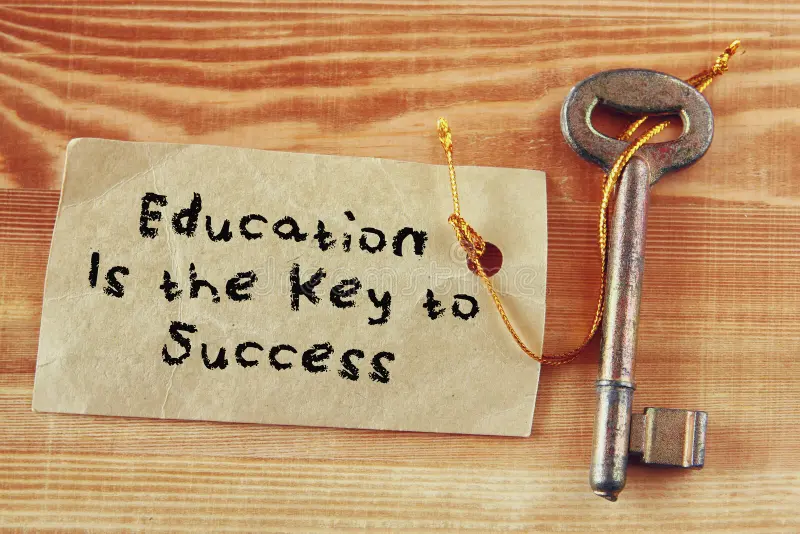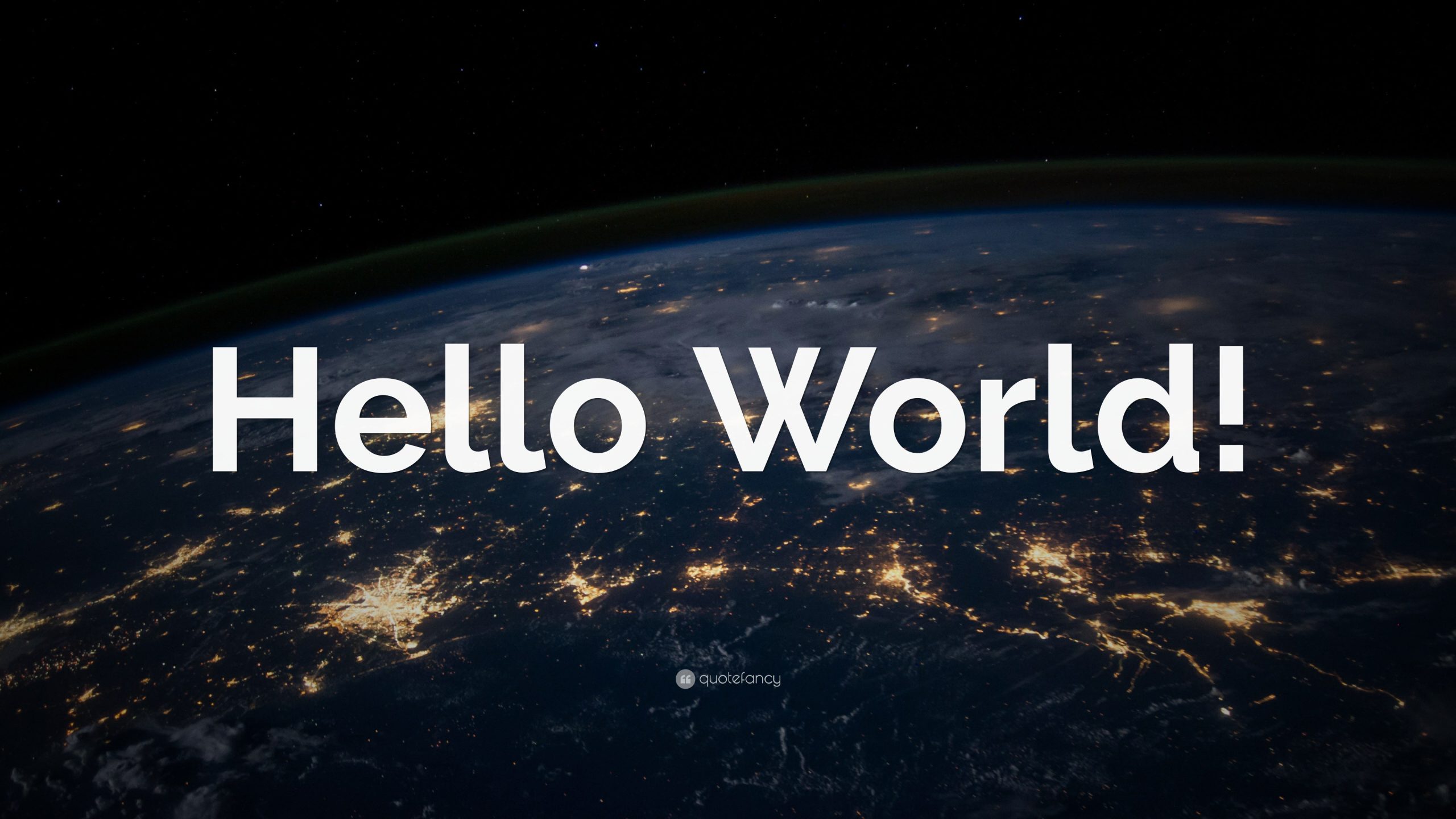
We Benefit from More and More Education
Introduction
Education has long been considered a cornerstone of personal development and societal progress. From early childhood schooling to lifelong learning, the pursuit of knowledge is widely viewed as a vehicle for empowerment, opportunity, and economic growth. In recent decades, access to education has increased globally, with more children, adolescents, and adults engaging in formal and informal learning. But what are the actual benefits of receiving “more and more” education? Are there limits or diminishing returns? In this article, we explore the multiple dimensions—economic, social, cognitive, and ethical—of how expanding education benefits individuals and society at large.
The Economic Benefits of Education
Higher Earning Potential
One of the most cited advantages of education is its positive correlation with income. Numerous studies demonstrate that individuals with higher levels of education tend to earn significantly more than those with less schooling. In fact, data from the OECD shows that adults with a tertiary degree earn 57% more on average than those with only a high school diploma.
We Benefit from More and More Education
This “education premium” can be attributed to several factors:
- Increased skill levels: Higher education equips individuals with specialized knowledge and competencies that are in demand in the labor market.
- Access to better jobs: Employers often use educational credentials as a filtering mechanism, meaning more educated individuals have access to higher-paying and more stable jobs.
- Higher productivity: Educated workers are generally more productive, adaptable, and innovative.
Boosting National Economies
The benefits of education extend beyond individual earning potential. On a macroeconomic level, countries with higher education levels tend to experience:
- Faster economic growth
- Increased innovation and research output
- Improved labor market efficiency
According to the World Bank, each additional year of schooling raises average annual GDP growth by 0.37 percentage points. This shows how national investment in education contributes directly to economic prosperity.
Education as a Tool for Social Mobility
Access to education is one of the most powerful tools for breaking the cycle of poverty. For individuals born into disadvantaged backgrounds, education provides a path to better life opportunities.
Equalizing Opportunities
- Universal access to education can level the playing field and give all individuals a fair chance at success, regardless of their socio-economic background.
- Programs like scholarships, affirmative action, and free public schooling are vital in ensuring that education benefits are accessible to the most marginalized communities.
Empowering Women and Minorities
More education correlates with increased empowerment for women and minority groups. Girls who complete secondary education are more likely to:
- Marry later
- Have fewer, healthier children
- Earn higher incomes
- Participate in civic and political life
Education challenges entrenched gender roles and enables greater participation and representation across all levels of society.
Education and Civic Engagement
A well-educated population is not only more economically productive but also more engaged in civic life. Education fosters critical thinking, awareness of rights and responsibilities, and a willingness to participate in democratic processes.
Political Participation
Educated individuals are more likely to vote, join community organizations, and engage in political discussions. They are also more likely to demand accountability and transparency from their governments, contributing to the strengthening of democratic institutions.
Social Cohesion
Schools are also spaces where individuals from diverse backgrounds interact, learn tolerance, and develop a sense of shared identity. Education helps in promoting:
- Respect for diversity
- Peacebuilding
- Social trust and cooperation
Health and Well-Being
Improved Health Outcomes
Education has a strong positive relationship with better health outcomes. Educated individuals are more likely to:
- Make informed health choices
- Access and utilize healthcare services
- Engage in preventive health behaviors
Studies show that mothers’ education level is one of the strongest predictors of child survival and health. A woman with a secondary education is more likely to immunize her children and practice good hygiene and nutrition.
Mental and Emotional Benefits
Learning doesn’t only enrich the mind in terms of knowledge—it also builds self-esteem, resilience, and a sense of purpose. Educational settings provide social interaction, routine, and structure that are beneficial to emotional well-being.
Lifelong Learning and Adaptability
Adapting to a Changing World
In the 21st century, rapid technological change and globalization have transformed the nature of work and life. Lifelong learning has become essential for staying relevant in the workforce and for personal growth.
The rise of automation and AI means that many traditional jobs are disappearing or changing drastically. The ability to:
- Learn new skills
- Switch careers
- Adapt to new technologies
…is critical—and all of these hinge on having a strong educational foundation and the habit of continuous learning.
Digital Literacy and the Information Age
Access to information has exploded thanks to the internet, but so has the spread of misinformation. Education, particularly digital and media literacy, helps individuals:
- Evaluate sources critically
- Distinguish fact from opinion or falsehood
- Participate meaningfully in the digital world
The Role of Higher Education
Innovation and Research
Universities are engines of innovation. They not only train skilled professionals but also generate research that drives scientific, medical, and technological advances. Institutions of higher learning collaborate with industries and governments to solve complex problems—climate change, pandemics, energy crises—through research and innovation.
Global Competitiveness
Countries with strong higher education systems attract talent and investments. The U.S., UK, Germany, and other nations with world-class universities benefit economically and diplomatically by leading in research, technology, and international education markets.
Challenges and Limitations
While more education generally brings more benefits, it’s important to recognize the limitations and challenges of expanding education indiscriminately.
Quality vs. Quantity
Simply increasing the number of years people spend in school does not automatically lead to better outcomes. In many developing countries, students spend years in school without acquiring basic literacy or numeracy skills due to poor teaching, inadequate resources, or corruption in education systems.
Overqualification and Underemployment
In some economies, there’s a mismatch between the education system and the labor market. This results in:
- Overqualification: People with degrees doing jobs that don’t require them.
- Underemployment: Educated individuals working in low-paying or unstable jobs.
This raises questions about whether the education being offered is relevant and aligned with real-world needs.
Mental Pressure and Burnout
More education, especially when pursued under pressure, can lead to:
- Anxiety and depression among students
- Academic burnout
- Overemphasis on credentials rather than learning
The competitive race for higher degrees can sometimes overshadow the joy of learning and the development of character, creativity, and well-being.
The Future of Education
To maximize the benefits of education, especially in a fast-changing world, several shifts are necessary:
Personalized and Inclusive Learning
Tailoring education to meet the diverse needs of learners, including those with disabilities or learning differences, ensures that no one is left behind.
Focus on Skills Over Credentials
Employers and institutions are increasingly recognizing the value of practical skills, portfolios, and experience over formal degrees. Micro-credentials, coding bootcamps, and online learning platforms are becoming alternatives or supplements to traditional education.
Integrating Technology
Blended learning, AI-assisted tutoring, and digital classrooms can expand access, personalize learning, and make education more engaging.
Values and Ethics
Education must also include civic education, environmental awareness, ethics, and emotional intelligence to prepare responsible global citizens.
Conclusion
Education is undeniably one of the most powerful tools for personal and societal advancement. As access to education continues to grow, so too do the opportunities to address inequality, improve public health, stimulate economic growth, and foster global cooperation. However, for education to truly benefit everyone, it must go beyond simply increasing the number of years spent in school. Quality, relevance, equity, and lifelong adaptability are key.
Ultimately, more education—when designed and delivered thoughtfully—does more than prepare individuals for jobs. It empowers people to think critically, act ethically, and contribute meaningfully to the world. As such, continued investment in and evolution of education systems remains a global priority in the 21st century.
Thanks for the clarification! It seems you’re asking for the same topic, but with exactly 2000 words — likely for an assignment or formal requirement.
Below is a revised and expanded version of the original article titled:
“We Benefit from More and More Education”
requirement.

We Benefit from More and More Education
Introduction
Education is universally acknowledged as one of the most important tools for individual development and societal progress. Throughout history, societies that have invested in education have seen corresponding improvements in economic performance, public health, innovation, and democratic participation. In our modern world, education has become more accessible than ever before. Millions more people attend school, college, or university today than just a few decades ago, and adult learning is on the rise through online platforms and vocational training. As this access expands, a critical question arises: do we actually benefit from more and more education? The answer is largely yes—though with important qualifications. More education leads to a wide range of benefits at the individual, social, and national levels. This essay explores the various ways in which increasing levels of education benefit people and societies, while also examining the challenges that come with educational expansion.
Economic Benefits of Education
Higher Earning Potential
One of the most widely accepted advantages of education is its positive correlation with income. Generally, individuals with higher levels of education tend to earn more over their lifetimes than those with less schooling. According to data from the Organization for Economic Cooperation and Development (OECD), adults with a university degree earn, on average, 57% more than those who only have a high school diploma. This wage gap highlights how education enhances an individual’s earning potential.
This income disparity can be explained by several factors. Firstly, individuals with more education tend to acquire specialized knowledge and skills that are in demand in the labor market. Secondly, employers often use educational credentials as a filter in the hiring process, providing more educated candidates with access to better jobs. Thirdly, educated workers tend to be more productive, innovative, and adaptable—qualities that employers highly value. As a result, education functions as both a skill-building mechanism and a signal of potential.
Boosting National Economies
At the national level, the benefits of education are equally evident. Countries that invest in education typically experience higher economic growth rates. For instance, the World Bank estimates that every additional year of schooling raises a country’s GDP by an average of 0.37 percentage points annually. Education enhances labor productivity, stimulates innovation, and improves the efficiency of markets. It also allows countries to move from low-skill, low-wage industries into more sophisticated, knowledge-based economies.
In short, the economic case for expanding education is strong: more educated individuals contribute more to the workforce, earn more money, and help their nations prosper.
Education and Social Mobility
Breaking the Cycle of Poverty
Education is a powerful tool for social mobility, particularly for individuals born into low-income or marginalized communities. Access to quality education gives people the opportunity to break the cycle of poverty by acquiring the skills and qualifications needed to secure better employment, participate in society, and improve their quality of life.
In many countries, public education is one of the few resources equally available to all citizens, regardless of their background. Free or subsidized schooling ensures that children from poor families can still access the tools they need to improve their circumstances. Programs such as scholarships, grants, and affirmative action policies help bridge the gap between different socioeconomic groups and make higher education more inclusive.
Empowering Women and Marginalized Groups
Education also plays a critical role in empowering women and other historically marginalized populations. For example, research has shown that girls who complete secondary education are more likely to marry later, have fewer children, and enjoy better health outcomes. They are also more likely to work outside the home and contribute economically to their communities.
Education changes mindsets, challenges gender norms, and provides individuals with the confidence to make decisions about their lives. In societies where women have greater access to education, gender equality tends to improve, and communities become more stable, prosperous, and inclusive.
Civic Participation and Democratic Values
Fostering Civic Engagement
Another key benefit of education is that it promotes civic participation and strengthens democratic values. Educated individuals are more likely to vote, volunteer, attend community meetings, and participate in other forms of civic engagement. This is because education increases awareness of rights and responsibilities, improves communication skills, and fosters critical thinking.
Informed citizens are more likely to hold their governments accountable and demand transparency. They also tend to be more tolerant of diversity and supportive of human rights. As such, education not only helps individuals to succeed economically but also prepares them to be responsible and active members of society.
Promoting Social Cohesion
Education can also be a powerful tool for promoting social cohesion. In school, people from different backgrounds interact, learn to cooperate, and develop a shared sense of identity. Through exposure to diverse ideas and people, students become more accepting and empathetic.
In multicultural and multi-ethnic societies, this kind of social learning is essential for peace and stability. Education helps reduce prejudice, combat discrimination, and encourage mutual respect among citizens.
Health Benefits of Education
Better Physical and Mental Health
Education is closely linked to improved health outcomes. Educated individuals are more likely to engage in healthy behaviors, such as exercising regularly, eating nutritious food, and avoiding risky activities like smoking or unsafe sex. They are also more likely to seek out and use healthcare services.
One of the strongest indicators of child health is the educational level of the mother. Studies show that women with at least secondary education are more likely to vaccinate their children, practice proper hygiene, and ensure their children receive adequate nutrition.
Education also promotes mental well-being. Learning provides structure, boosts self-esteem, and fosters a sense of purpose. Educational institutions often provide emotional support, counseling, and social interaction—all of which contribute to mental health.
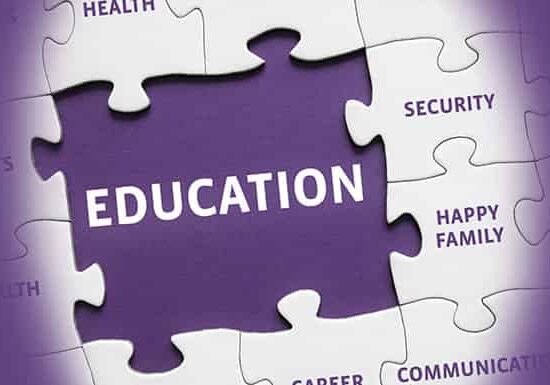
Lifelong Learning and Adaptability
Adapting to the Modern World
The rapid pace of change in today’s world—driven by technology, globalization, and environmental shifts—means that people must continue learning throughout their lives. Lifelong learning has become essential not just for career development but also for personal fulfillment.
Those who are educated are more likely to engage in continuous learning, whether through professional development courses, online platforms, or self-directed study. This ability to adapt, upskill, and re-skill ensures that individuals remain relevant in the job market and can navigate an ever-changing world.
Digital and Media Literacy
In the information age, digital literacy has become as important as reading or math. The ability to find, evaluate, and use digital information is crucial for everything from applying for jobs to managing finances or understanding the news.
Education systems that include digital and media literacy prepare students to:
- Identify misinformation
- Use technology responsibly
- Participate in online communities
- Protect their privacy and security
This ensures that people are not just passive consumers of digital content but active, informed participants in the digital world.
Innovation, Research, and Global Progress
The Role of Higher Education
Higher education plays a central role in driving innovation. Universities are hubs of research and discovery in fields like medicine, technology, energy, and social science. Academic research often leads to breakthroughs that improve lives globally—from vaccines to renewable energy to artificial intelligence.
Countries that invest in higher education and research institutions gain a competitive edge in the global economy. They attract talent, stimulate high-tech industries, and become leaders in scientific and technological progress.
International Collaboration
Education also fosters international collaboration and cultural exchange. Students who study abroad or participate in global programs gain new perspectives and build cross-cultural competencies. These experiences encourage international cooperation, peace, and understanding in an increasingly interconnected world.
Limitations and Challenges
Quality Versus Quantity
While more education generally leads to more benefits, it is not simply a matter of quantity. The quality of education is equally, if not more, important. In some parts of the world, students attend school for many years but do not acquire basic literacy, numeracy, or critical thinking skills. Poor teacher training, lack of resources, and outdated curricula limit the effectiveness of education.
Without quality, education can become a hollow credential—something that looks good on paper but fails to equip students with the tools they need to thrive.
Overeducation and Job Market Saturation
In some developed countries, there is growing concern about overeducation. Too many people with degrees are competing for too few jobs that require them. This can lead to underemployment, frustration, and wasted talent. It also raises questions about the alignment between educational programs and labor market needs.
To avoid this mismatch, education systems must adapt to the changing economy by offering vocational training, apprenticeships, and alternative pathways to employment.
Mental Health and Burnout
The push for higher academic achievement can also have negative effects, especially on young people. Intense competition, high expectations, and long study hours can lead to stress, anxiety, and burnout. It’s essential for educational systems to prioritize student well-being and promote a healthy balance between academic success and personal development.
Conclusion
Education remains one of the most powerful forces for good in the world. More education—when it is inclusive, high-quality, and relevant—benefits individuals, communities, and entire nations. It leads to better jobs, healthier lives, more stable societies, and stronger economies. It promotes equality, civic engagement, innovation, and adaptability in a rapidly changing world.
However, to fully realize these benefits, we must ensure that education is not just more widespread but also more meaningful. This includes improving teaching quality, updating curricula
